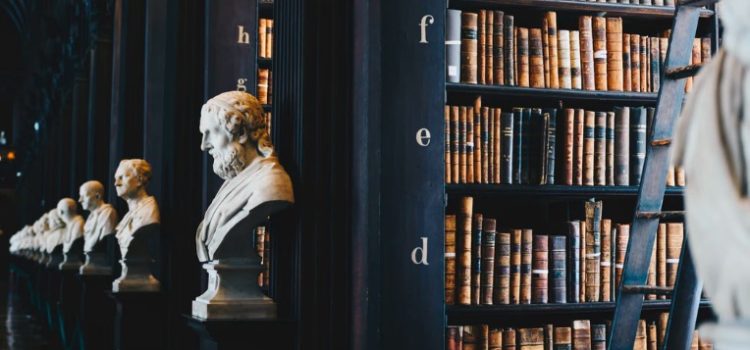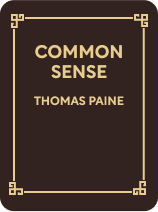

This article is an excerpt from the Shortform book guide to "Common Sense" by Thomas Paine. Shortform has the world's best summaries and analyses of books you should be reading.
Like this article? Sign up for a free trial here .
Are you looking for Common Sense quotes by Thomas Paine? What are some of the most noteworthy passages worth revisiting?
Thomas Paine’s Common Sense provides both an intellectual backing and a roadmap for full American independence from England. While it is often read as a book that’s only concerned with questions related to America and England, Paine also lays out a comprehensive political philosophy.
The following Common Sense quotes encapsulate the essense of his argument.
Common Sense: Notable Quotes
In a time when Americans were divided on their wish for liberation from England, Common Sense provided a persuasive argument to leave England and their model of governance for a republic directly elected by the people. Common Sense answers the question: What does the ideal government look like? In these ways, it is more relevant today than ever.
Below are some of Thomas Paine’s Common Sense quotes that highlight the key points of Paine’s argument.
“From Britain we can expect nothing but ruin. If she is admitted to the government of America again, this continent will not be worth living in.”
Paine believed that being under England would inevitably destroy America. In Common Sense, he argued that if America chooses not to seek independence, the King of England will become more tyrannical, any agreement made will only be temporary, and the American citizens may lose the unity that they have right now. If America’s population grows and the conflict drags on, it’s only natural based on the size of the colony that partisans will take up positions and infighting will begin.
“Until an independence is declared the continent will feel itself like a man who continues putting off some unpleasant business from day to day, yet knows it must be done, hates to set about it, wishes it over, and is continually haunted with the thoughts of its necessity.”
This quote encapsulates Paine’s central point running throughout the pamphlet—America must seek independence from the British monarchy. He argued that colonies will one day break free from the King’s rule. However, he maintained that the best time to act would be now, rather than later because of the unique state of America at the time of publishing of the pamphlet.
“For all men being originally equals, no one by birth could have the right to set up his own family in perpetual preference to all others forever, and tho’ himself might deserve some decent degree of honours of his cotemporaries, yet his descendants might be far too unworthy to inherit them.”
Thomas Paine was a firm opponent of hereditary monarchy as a form of government for several reasons:
- If all men are equal, no one should be able to set up his family in power for perpetuity, no matter his personal virtues.
- Even if citizens choose a virtuous man to rule them, it’s clear from history that there’s no reason his sons will be.
- Kids can also frequently ascend to the throne, who then become an easy mark for miscreants to gain power themselves.
- Some argue that hereditary succession can prevent civil war by keeping all of the power in the hands of one family that is uninterested in turning on itself—this can be disproved with a cursory glance at English history: The Yorks and the Lancasters fought for supremacy for years.
- In private, most people treat hereditary monarchies with contempt, but they are either afraid of the power they wield or are benefitting from the monarchy, so they have no reason to rebel.
“Society in every state is a blessing, but government even in its best state is but a necessary evil; in its worst state an intolerable one; for when we suffer, or are exposed to the same miseries by a government, which we might expect in a country without government, our calamity is heightened by reflecting that we furnish the means by which we suffer…”
According to Paine, government is a necessity to protect its citizens from the inherent vice in humanity, and its sole purpose is to provide its citizens with security.
In order to understand what makes Paine’s ideal government, we need first to understand the difference between government and society.
- Society is produced by a group banding together for collective wants. This is in all cases a positive development.
- Government is produced by moral failings—it is a restraint on vice. In the best case, government is a necessary evil; in the worst case, it can become intolerable.
Because evil develops in society and among humans, they agree to enter into a contract where they give up some of their freedoms for protections from said evil. Government is about security.
“Men who look upon themselves born to reign, and others to obey, soon grow insolent; selected from the rest of mankind their minds are early poisoned by importance; and the world they act in differs so materially from the world at large, that they have but little opportunity of knowing its true interests, and when they succeed to the government are frequently the most ignorant and unfit of any throughout the dominions.”
Simply by virtue of being told that they are fit to be kings, Hereditary Monarchs’ minds frequently are poisoned from the start. They are self-important and have no way of understanding the problems of the common man.

———End of Preview———
Like what you just read? Read the rest of the world's best book summary and analysis of Thomas Paine's "Common Sense" at Shortform .
Here's what you'll find in our full Common Sense summary :
- A comprehensive breakdown of Thomas Paine's pamphlet about why America should liberate from England
- An examination of Paine's political philosophies
- The history behind why Paine wrote the pamphlet and how it was received by the public






